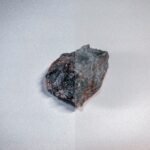Are you ready to embark on a journey through time and discover the secrets hidden within the Earth’s ancient remnants? If you’re a Year 6 student with a curious mind, then this article is tailor-made for you! Get ready to be amazed as we delve into the fascinating world of fossils. From the jaw-dropping stories they tell us about our planet’s history to the mind-boggling processes of their formation, this article will introduce you to some incredible fossil facts that will leave you in awe. So buckle up and get ready to unearth some truly extraordinary knowledge about fossils!
Facts About Fossils for Year 6
Fossils are like secret time capsules buried deep within the Earth, holding incredible stories of ancient life. They are the preserved remains or traces of organisms that lived long ago, providing us with valuable clues about the history of our planet. Let’s dive into some fascinating facts about fossils that will ignite your curiosity and help you understand Earth’s ancient remnants!
Fossilization: Unlocking the Past
Have you ever wondered how fossils are formed? It’s a fascinating process called fossilization. When an organism dies, its body is usually decomposed or eaten by scavengers. But under special conditions, such as being quickly covered by sediment like sand or mud, the process of fossilization can begin.
Over a long period of time, the weight of the sediment compacts it into rock, slowly preserving the remains of the deceased organism. This process can capture not only the bones but also soft tissues, such as feathers or leaves, leaving behind a detailed snapshot of life from millions or even billions of years ago.
Key Point: Fossils are formed through a process called fossilization, which involves the burial and preservation of dead organisms in sediment over time. It is like creating a time capsule from the distant past!
A Window into the Ancient World
Fossils are like windows that allow us to peek into the ancient world, revealing the incredible diversity of life that once inhabited our planet. These ancient remnants can teach us how plants and animals looked, what they ate, and how they interacted with their environment.
By studying fossils, scientists have discovered amazing creatures that once roamed the Earth, like the mighty T-Rex and the gigantic woolly mammoth. Fossils can also provide evidence for how living things and the environment have changed over time. They are like puzzle pieces that scientists fit together to reconstruct the history of the Earth and the evolution of life.
Key Point: Fossils provide us with a glimpse of the past, showing us how plants and animals looked in ancient times. They also help us understand how life and the environment have changed throughout Earth’s long history. It’s like solving a puzzle to unveil the secrets of our planet’s past!
Fossils and the Evidence for Evolution
Fossils play a crucial role in understanding the concept of evolution. They serve as solid evidence that living things have changed over time. By studying fossils, scientists can trace the gradual changes in species, revealing how they have adapted and evolved to survive in different environments.
For instance, fossils have shown us how fish evolved into land-dwelling animals, and how dinosaurs transformed into birds. These transitional fossils provide a “missing link” between different species, highlighting the gradual changes that occurred over millions of years.
Key Point: Fossils provide compelling evidence for the process of evolution. They illustrate the gradual changes in species over time, showing us how different organisms have adapted and evolved to survive. Fossils are the storytellers of evolution!
The Wide World of Fossils
Fossils can be found in rocks of all ages, stretching back billions of years. They have been discovered on every continent, from the freezing Antarctic to the scorching deserts, providing us with a global record of life’s history.
Just like an archeologist searching for hidden treasures, paleontologists carefully excavate and study fossils to unlock their secrets. These scientists use special tools like brushes and chisels to delicately uncover fossils buried deep in the earth, piecing together the story of ancient life.
Key Point: Fossils have been found all over the world in rocks of different ages, giving us a global record of life’s history. Paleontologists work like detectives, excavating and studying fossils to uncover the mysteries of the past!
Fossils: A Time Capsule of Wonder
Now that you’ve learned some incredible facts about fossils, imagine the wonders they hold! From the preserved remains of prehistoric creatures to the evidence of Earth’s ever-changing landscapes, fossils truly are nature’s time capsules, capturing snapshots of our planet’s history.
So, the next time you see a fossil, remember that you’re holding a piece of the puzzle that helps us understand the remarkable story of life on Earth. Let your curiosity guide you as you explore the world of fossils and marvel at the mysteries they reveal.
Key Point: Fossils are like time capsules that transport us to the ancient world. They hold the secrets of Earth’s history and ignite our imagination as we uncover glimpses of the past. Let fossils be your guides into the wonders of our planet’s past!
If you’re curious about the incredible world of fossils and want to unearth some fascinating facts, look no further! We’ve compiled a list of amazing information that will leave you in awe. From the discovery of ancient dinosaur bones to the secrets hidden within amber, these facts about fossils will transport you back in time. So, don’t delay, click here to embark on an enlightening adventure: facts about fossils. You won’t want to miss out on this captivating journey into our planet’s prehistoric past. Happy exploring!
Fossils are fascinating remnants of ancient life that can unveil the mysteries of our planet’s history. If you’re in year 6 and hungry for some mind-blowing fossil facts, you’ve come to the right place! Let me take you on an awe-inspiring journey through time by exploring some incredible fossil discoveries. From enormous dinosaur bones to tiny fossilized insects, there’s a whole world waiting to be discovered. Prepare to be amazed by these fossil facts for year 6! So, why wait? Click here to uncover jaw-dropping insights about fossils that will leave you in awe: fossil facts for year 6.
Did you know that fossils hold secrets that even 6th graders can unravel? Get ready to become a fossil detective and explore the fascinating world of these ancient relics. Immerse yourself in interesting facts about fossils for 6th graders, and discover how scientists piece together the puzzle of ancient life. Uncover the story behind petrified plants, prehistoric sea creatures, and even the remains of early humans. Brace yourself for a thrilling adventure through time and click on this link to unearth captivating facts: facts about fossils for 6th graders.
Calling all sixth graders who crave knowledge! Are you ready to dive into the mind-boggling world of fossils? Prepare to be amazed by the intriguing stories that lie within the ancient remains of living organisms. From fearsome dinosaurs to the tiniest trilobite, fossils have tales to tell. Roam the land of captivating discoveries and unlock the treasure trove of knowledge hidden beneath the Earth’s surface. Get ready to embark on a thrilling journey of paleontological wonders and click here to explore these interesting facts about fossils for sixth graders: interesting facts about fossils for sixth graders.
With each click, you’ll uncover a new piece of the puzzle, a new chapter in the history of our planet. Don’t miss out on this exciting opportunity to unravel the secrets of the past. Happy fossil hunting!
FAQ
Q: What are fossils?
A: Fossils are preserved remains or traces of dead organisms.
Q: Where are fossils found?
A: Fossils are found in rocks of all ages, stretching back billions of years.
Q: What information do fossils provide?
A: Fossils provide evidence for how living things and the environment have changed over time.
Q: How can fossils tell us about the past?
A: Fossils can tell us how plants and animals on Earth used to look.
Q: How do fossils support the theory of evolution?
A: Fossils are good evidence for evolution because they show that living things have changed over time.
“`json
“`
- China II Review: Delicious Food & Speedy Service - April 17, 2025
- Understand Virginia’s Flag: History & Debate - April 17, 2025
- Explore Long Island’s Map: Unique Regions & Insights - April 17, 2025
















